#dean rusk
Link
In June 1964, the Shah of Iran and Farah made an unofficial trip to the USA. The CIA found the monarch “sensitive, often moody”, confronting “a rising middle class [that] has agitated restlessly for greater political power and accelerated economic and social change…” ••• “Since the overthrow of the Mossadeq regime in 1953 he has operated largely as a dictator, with a thin facade of parliamentary democratic procedures.”
The Mossadegh Project
#shah of iran#mohammad reza pahlavi#iran#iranian#us foreign policy#LBJ#middle east#UCLA#student protest#dictators#cold war#history#tehran#state department#dean rusk#foreign policy#foreign affairs#washington dc#national gallery of art#persian art#monarchy#kings and queens#royal couple#royals#international monetary fund#IMF#eximbank#soviet union#USSR#dictatorship
8 notes
·
View notes
Text
“Appeasement only makes the aggressor more aggressive.”
~Dean Rusk, United States Secretary of State 1961-69
6 notes
·
View notes
Text
The Shadow of War: A Novel of the Cuban Missile Crisis by Jeff Shaara #BookReview #ARC #NetGalley #JFK #RFK
A new novel goes inside the White House during the #CubanMissileCrisis. #TheShadowofWar doesn't have to do much to create that sense of fear that the world could have blown up during those #thirteendays in 1962. #NetGalley #ARC #BookReview #JFK #RFK
New York Times bestselling author Jeff Shaara brings alive the heart-stopping days and nights of the Cuban Missile Crisis in a novel featuring his trademark “you are there” immediacy. Ripe for Jeff Shaara’s vivid alchemy of fact-based fiction, here is the Cuban Missile Crisis as readers have never seen it.
Version 1.0.0
In addition to the tension-filled corridors of power in Washington, Moscow,…
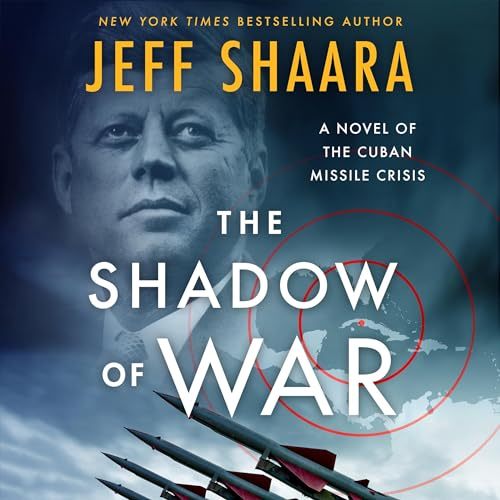
View On WordPress
#ARC Review#Bay of Pigs#Book Review#Cold War#Cuba#Cuban Missle Crisis#Dean Rusk#Fidel Castro#Historical Fiction#Jeff Shaara#JFK#John F. Kennedy#NetGalley#New Books#Nikita Krushchev#RFK#Robert F. Kennedy#Russia#Soviet Union#St. Martin&039;s Press#The Old Lion: A Novel of Theodore Roosevelt#The Shadow of War#The Shadow of War: A Novel of the Cuban Missile Crisis
0 notes
Text
Firing Line With William F. Buckley: Secretary Dean Rusk- 'The Revisionist Historians (1974)'
Source:Firing Line With William F. Buckley– with former Secretary of State Dean Rusk (1961-69)
Source:The New Democrat
“Firing Line with William F. Buckley Jr.: The Revisionist Historians. Episode S0123, Recorded on January 23, 1974.”
From Firing Line With William F. Buckley
“Dean Rusk is, I suppose,” Mr. Buckley begins, “by everyone’s reckoning the
principal historical victim of the Vietnam…

View On WordPress
#1974#America#Asia#Atlanta#Center Right#Classical Liberalism#Classical Liberals#Cold War#Dean Rusk#Democratic Party#Firing Line#Firing Line With William F. Buckley#Georgia#John F. Kennedy#Liberal INternationalism#LIberal Internationalists#Liberalism#Liberals#Lyndon Johnson#PBS#President John F. Kennedy#President Lyndon Johnson#Secretary of State Dean Rusk#The 1960s#The 1970s#U.S. Department of State#U.S. Government#United States#Vietnam#Vietnam War
0 notes
Text
we're car to car and i think the other fellow just swerved
3 notes
·
View notes
Text
"the root of everything is Reagan"
actually the root of america's current foreign policy is the Kennedy Admin
1 note
·
View note
Quote
We wuh eyeball ah say eyeball-to-eyeball and that dog just blinked.
Foghorn Leghorn
0 notes
Text

Minutes of the House Committee on Un-American Activities, August 6, 1964
Record Group 233: Records of the U.S. House of RepresentativesSeries: Committee PapersFile Unit: Minutes of Full Committee and Subcommittee Meetings of the Internal Security Committee During the 80th through 93rd Congresses
COMMITTEE ON UN-AMERICAN ACTIVITIES
August 6, 1964
The Committee on Un-American Activities met in executive session on August 6, 1964, in Room 225 of the Cannon House Office Building at 3:30 o'clock p.m. The following members of the Committee were present:
Edwin E. Willis, Chairman August E. Johansen
Joe R. Pool Henry C. Schadeberg
Donald C. Bruce
The staff members present included Francis J. McNamara, director; Frank S. Tavenner, Jr., general counsel; Alfred M. Nittle, counsel; Donald T. Appell, chief investigator; and Juliette P. Joray recording clerk.
The meeting was called to order by the chairman at 3:30 o'clock p.m.
The Committee considered the release of the testimony of Dr. James H. Robinson who appeared before the Committee in executive session on May 5, 1964. There being no objection it was so ordered.
Mr. Pool, chairman of the subcommittee holding hearings in the matter of Entry of Aliens in the United States under waiver of ineligibility (specifically, the Yasui case), again reported to the full committee the receipt of a request from Secretary of State Dean Rusk that he be permitted to testify and after a full discussion, a motion was made by Mr. Johansen, seconded by Mr. Bruce, and carried unanimously, that the subcommittee accept the Secretary's invitation to testify.
The meeting adjourned at 3:55 o'clock p.m.
E. E. Willis
Chairman
Juliette P. Joray
Recording Clerk
25 notes
·
View notes
Text
One of the best ways to persuade others is with your ears—by listening to them.
—Dean Rusk
8 notes
·
View notes
Text
A Tale as old as time ( Start of arc)
August 31, 2043, Hinata- Nanami residence
?: Alright we are going live in 3, 2, 1! Roll it!.
Agent Murphy: So Hinata, I'm going to ask you a few questions, is that okay with you? You could take some time a bit before you answer.

Uh... No that's fine! Really. Just tell me what you want to tell me.
Agent Murphy: You're an easy guy to talk to, I like that. But anyway, let's get to the point. Hinata..., looking back on your activities during the early 2010s and looking at yourself now, what would you tell your son about what you did then?


Flashback sequence
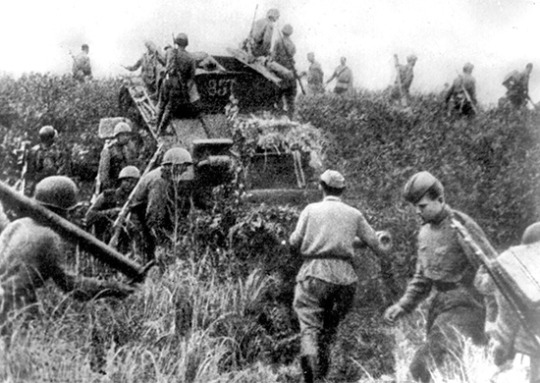
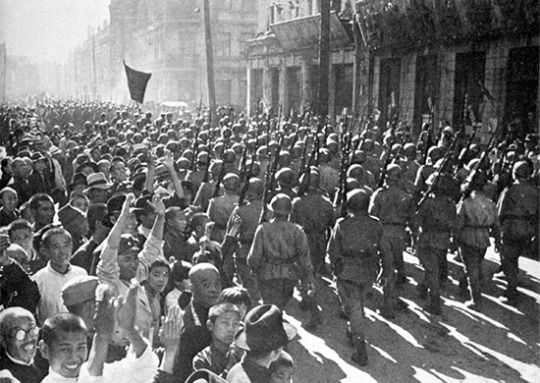
*Soviet troops cross into Manchuria on August 9th. They reach the city of Harbin on August 21st. Crowds of liberated Chinese citizens cheer and congratulate their arrival in the city*.
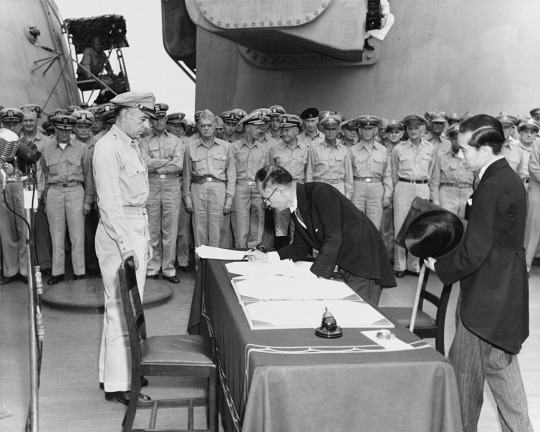
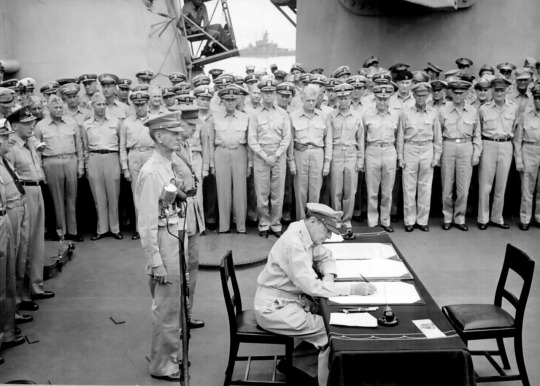
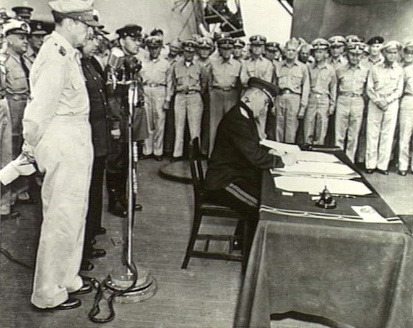

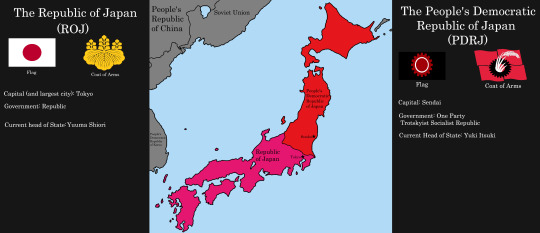
*Representatives from both the United States and the Soviet Union sign the agreement on August 26, 1946. General of the Army Douglas MacArthur of the United States and Lieutenant General Kuzma Derevyanko of the Soviet Army signed the treaty along with the Japanese foreign minister Mamoru Shigemitsu. Macarthur and Emperor Hirohito take one for the cameras. The division areas are finalized*.
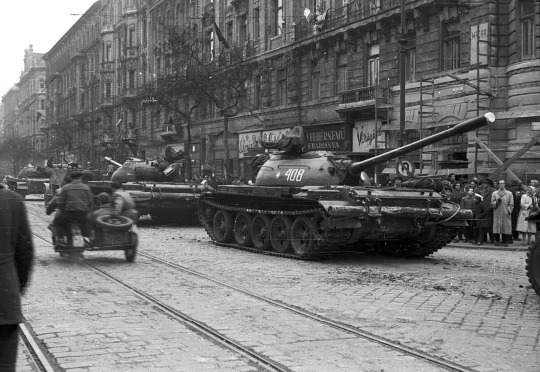
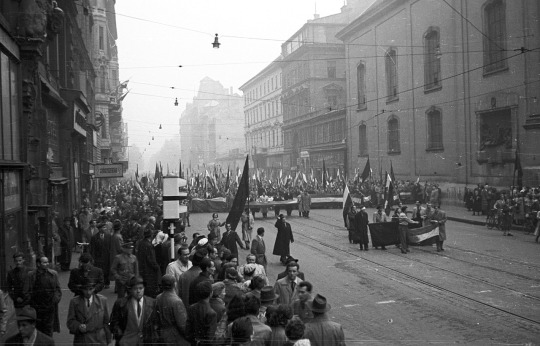
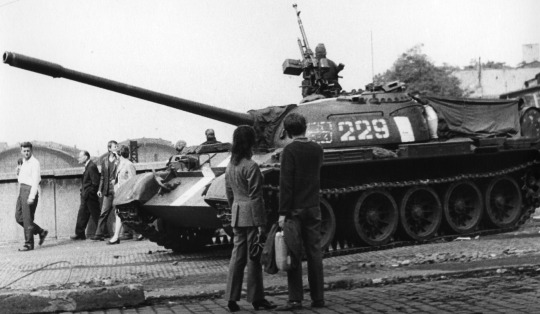
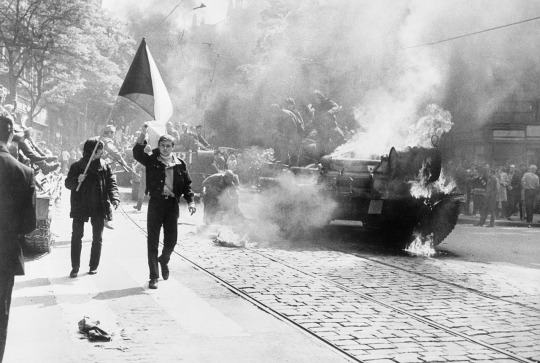
*Soviet T54 tanks march and open fire on student protesters and other rioters, first in Hungary in 1956 and in Prague in 1968. Several people were killed in both riots and thousands more were injured. A savage response, this would be a tactic that would be repeated again in the 1980s*.
"Those are not riots, but rebellions. People rebel because of oppression and conditions. Conditions that make it impossible to live, no matter if things get good or not. People are tired of this and when they get tired, they rebel. No rebellion is born out of violence, it's born out of the conditions" US Secretary of State Dean Rusk, December 1961.
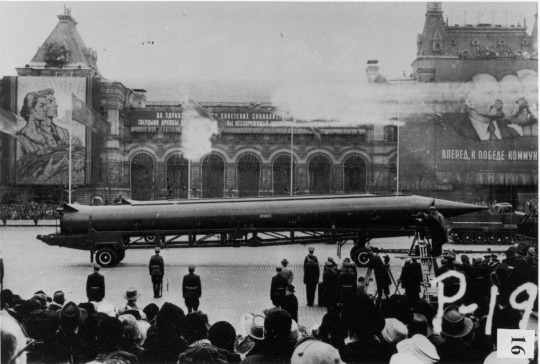

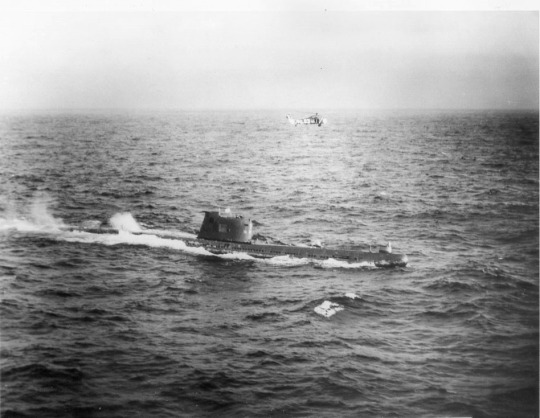
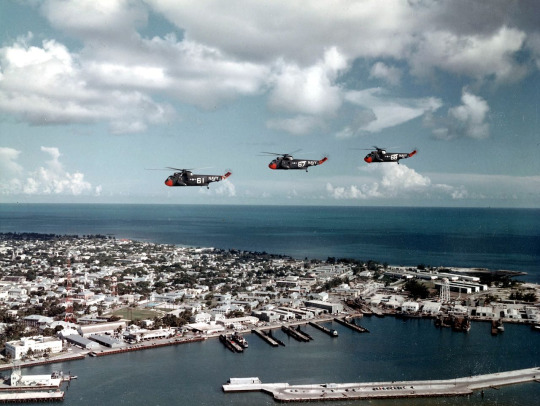
*R12 MRBM missiles being shown at a red square parade. These missiles were used in the Cuban Missile Crisis of October 1962,, the closest humanity has come to extinction. An American P2 Neptune patrol airplane shadows a Soviet cargo freighter carrying il 28 beagle bombers. Sh 3 sea kings fly over Key West, Florida. The Soviet submarine B 59 is being observed by a Seabat ( Variant of the Choctaw helicopter) off the coast of Cuba*.
"Una Revolución!" Fidel Castro, 1960.
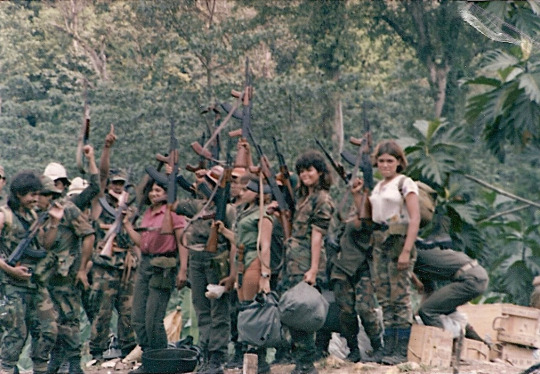


*Communist guerillas raise their guns as a show of strength against the Sandinista government in Grenada sponsored by the United States. Meanwhile, Dutch protesters in Amsterdam march to protest the installment of more Minuteman missiles in Europe. US President Ronald Reagan sits with Margaret Thatcher at Camp David, Maryland in December 1984. Reagan and Thatcher would be vocal opponents of Communism*
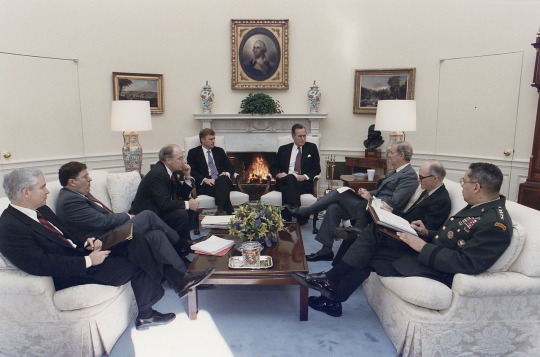
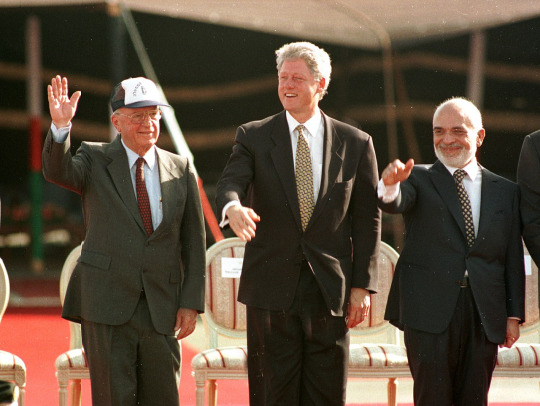
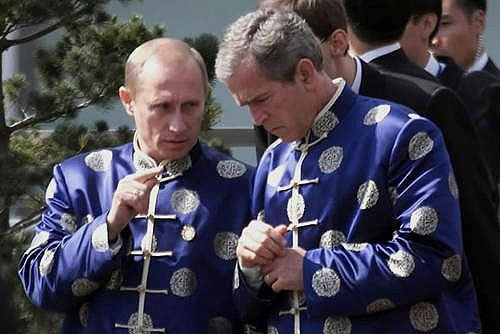
*President George H. W. Bush Meets with several of his advisors in 1992 to discuss the growing issues in the Middle East and Asia, more specifically Japan. President Bill Clinton signs a peace treaty between Israel and Jordan, much to the ire of Egypt. US Ambassador George W. Bush meets with Soviet Ambassador to the United Nations Vladimir Putin in Shanghai*.
"I believe that Communism is the new vanguard of the world, a Spread of freedom. A new world with freedom away from the capitalist oppressors and the corrupt. A new Japan for all Japanese Citizens, be they old or very young, even if it has to be fought with the sword and spear" Yuki Tateyama, General Secretary of the Communist party of Japan, November 2009
tape recording stops*
Cuts to the US Senate building and President John Mcain takes the stand. Mcain stands in front of Congress, facing a crowd of Republicans and Democrats
John Mcain: Global Communism, Marxism, Leninism, and the rest are THE single greatest to not only our National Security but to the security of the Free world. Worse than the Ku Klux Klan, worse than any hurricane, even worse than the Narco drug dealers and Mafia!. They have almost half of the Third World underneath their Iron Curtain! And no nation, I believe is more to blame for the spread than North Japan! Because of their support, half of the developing nations are socialist in nature and are allied with the Russians. Democracy is at stake! So I ask you all here, Republicans and Democrats, to put aside the grudges and work together in times that truly try men's souls.
end of flashback

Well... Let's just say that it wasn't really easy. I don't really think anyone can claim the fact that they just ended an era of conflict that went on for a century.

I didn't really expect to be a hero or a legend in my home country. I was just a person who wanted to be special, to feel like I was someone, to have a talent in something. I'm sure many of us can relate to having that feeling. That's why I signed up for Hope's Peak, despite the issues going on.

But... I honestly let that judgment get to me a bit. I didn't know what I was getting into, what I was about to see, what I was about to face, I had no idea how exactly bad things were over there. I suppose that maybe... my son does have a right to know what his dad did during that time, so he can try to learn and not be like me, to live a good and special life that my younger self wished he had.

So I will tell you because this has to be told, to let those know that things like this can never happen again. I just hope that the rest of the world is more calmer now and more safe than it was back then. So buckle up, this is going to get wild. It all started a few months ago...
12 notes
·
View notes
Text
@triviallytrue we are debating the formation of a divided Korea (mutual vs unilateral), here is Dean Rusk, the member of the State-War-Navy Coordinating Committee (SWINK) who determined the border:
We finally reached a compromise that would keep at least some US forces on the mainland, a sort of toehold on the Korean peninsula for symbolic purposes. During a SWINK meeting on August 14, 1945, the same day of the Japanese surrender, Colonel Charles Bonesteel and I retired to an adjacent room late at night and studied intently a map of the Korean peninsula. Working in haste and under great pressure, we had a formidable task: to pick a zone for the American occupation. Neither Tic nor I was a Korea expert, but it seemed to us that Seoul, the capital, should be in the American sector. We also knew that the US Army opposed an extensive area of occupation. Using a National Geographic map, we looked just north of Seoul for a convenient dividing line but could not find a natural geographical line. We saw instead the thirty-eighth parallel and decided to recommend that.
SWINK accepted it without too much haggling, and surprisingly, so did the Soviets. I had thought they might insist on a line farther south in view of our respective military positions. No one present at our meeting, including, two young American colonels, was aware that at the turn of the century the Russians and Japanese had discussed spheres of influence in Korea, divided along the thirty-eighth parallel. Had we known that, we almost surely would have chosen another line of demarcation. Remembering those earlier discussions, the Russians might have interpreted our action as acknowledgment
of their sphere of influence in Korea north of the thirty-eighth parallel. Any future talk about the agreed-upon reunification of Korea would be seen as mere show. But we were ignorant of all this, and SWINK’s choice of the thirty-eighth parallel, recommended by two tired colonels working late at night, proved fateful.
Source is Jongsoo Lee's The Partition of Korea After WW2, which this isn't 100% my area but I think Lee is a pretty-go person on this one. Later on they remark that we have no internal records of a Soviet discussion of the acceptance, but what we do have suggested that they were pleased with the agreement as it gave them 50% of Korea, far larger than the 25% they got of Germany, and for a war they did much less in.
And the quote also is good I think in showing that there was no show of force - the US was actually surprised at what they got, knowing that 'the respective military position' meant the Russian army could simply have kept going, no US forces were imminent.
Obviously the later cementing of a divided Korea is extremely complicated, but the initial division was done by mutual agreement between all parties who were gonna be involved (Sorry Korean people, you very much alas were not gonna be).
25 notes
·
View notes
Text
• U.S. State Department Documents on Iran | 1951-1980
#iran#iranian#tehran#shah of iran#mohammad reza pahlavi#monarchy#the shah#foreign policy#middle east#kings#nationalist#dean rusk#pahlavi#cold war#1960's#us foreign policy#foreign affairs#history#dictators#dictatorship#persian#monarch#kings and queens#1968
0 notes
Text


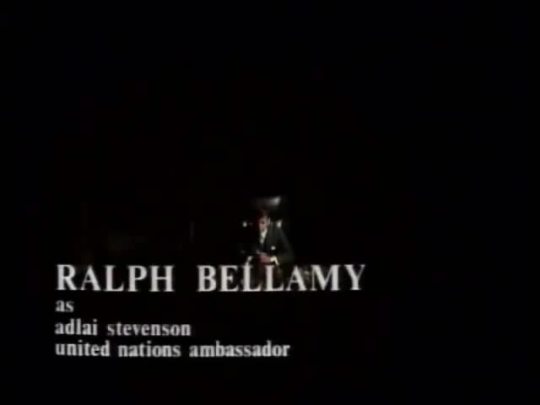



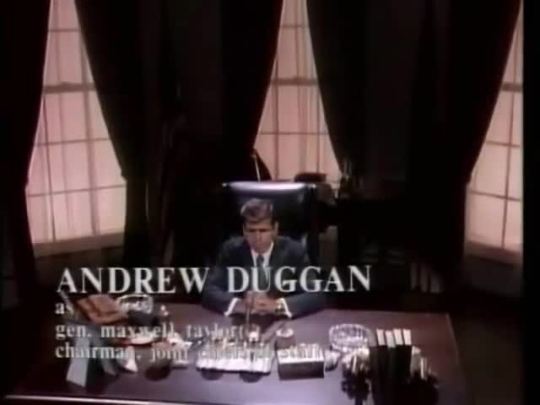
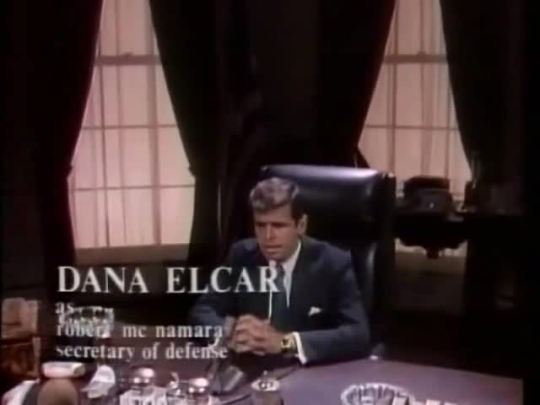
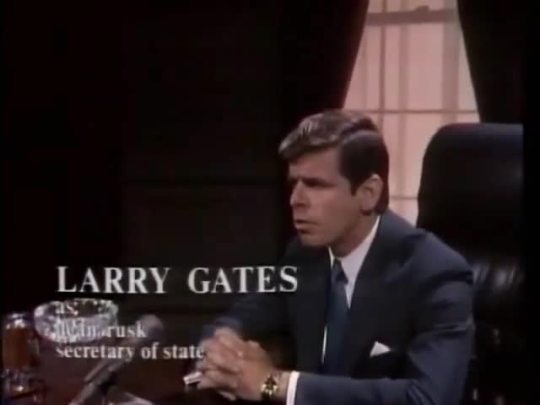


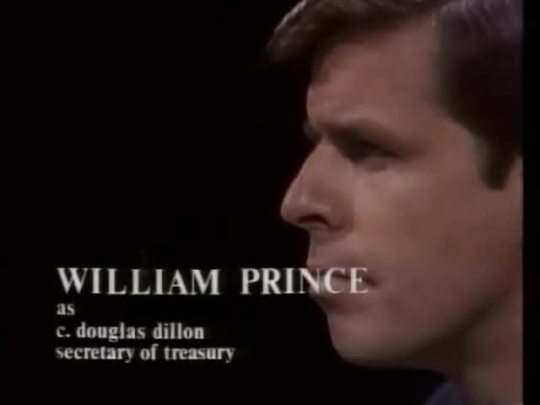

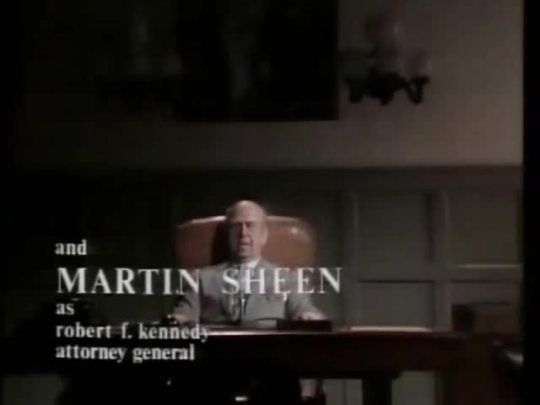
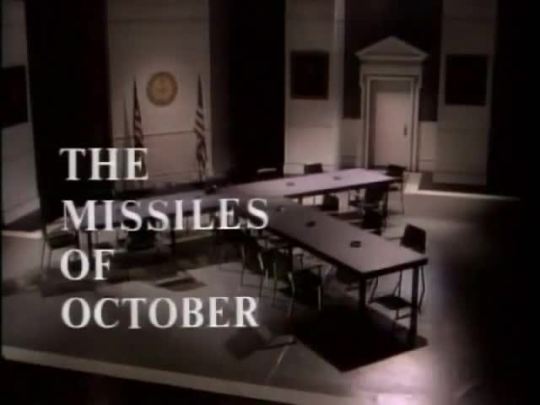
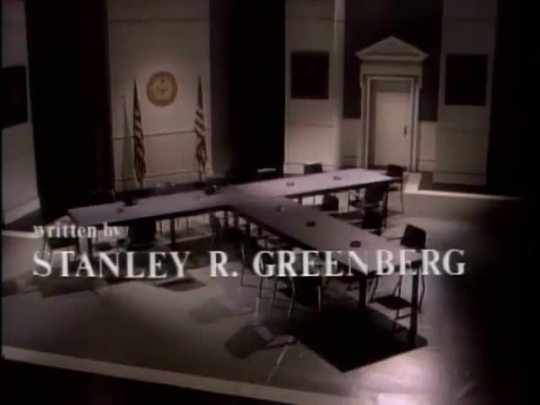
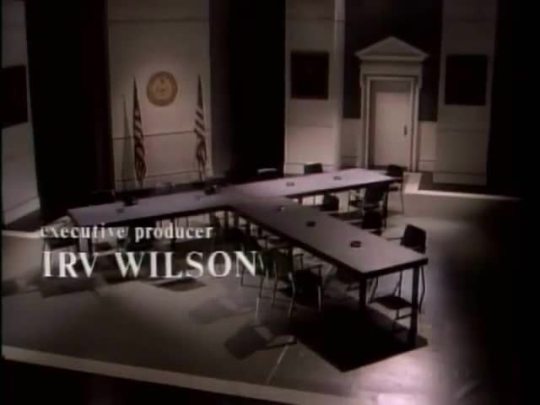
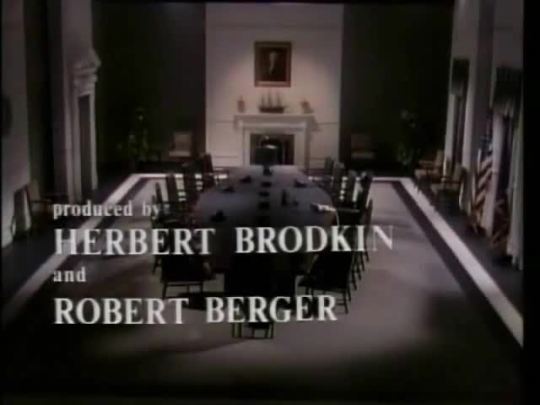

The Missiles of October - ABC - December 18, 1974
Docudrama
Running Time: 150 minutes
Stars:
Ralph Bellamy as Adlai Stevenson
Howard da Silva as Nikita Khrushchev
John Dehner as Dean Acheson
William Devane as John F. Kennedy
Andrew Duggan as General Maxwell Taylor
Dana Elcar as Robert McNamara
Larry Gates as Dean Rusk
James Olson as McGeorge Bundy
Nehemiah Persoff as Andrei Gromyko
William Prince as C. Douglas Dillon
John Randolph as George Ball
Martin Sheen as Robert F. Kennedy
Michael Lerner as Pierre Salinger
Clifford David as Theodore Sorensen
Albert Paulsen as Anatoly Dobrynin
Keene Curtis as John McCone,
Robert P. Lieb as Curtis LeMay
#The Missiles of October#TV#ABC#Docudrama#1974#Ralph Bellamy#Howard da Silva#John Dehner#William Devane#Andrew Duggan#Dana Elcar#Larry Gates#James Olson#Nehemiah APersoff#William Prince#John Randolph#Martin Sheen
6 notes
·
View notes
Text

Ambassador Eunice S. Reddick (August 21, 1951) a diplomat and Ambassador to the Republic of Niger, was born in New York City. She received her MA in International Affairs from Columbia University’s School of International Affairs and worked for several years at the Africa-America Institute.
She joined the US Foreign Service in 1980 and received her first overseas post the following year when she was assigned to the Consular Office in the Embassy in Harare, Zimbabwe. She was assigned to the Bureau of Population, Refugee, and Migration Affairs in the State Department to monitor USG assistance to African refugees. She served as State Department Country Officer for Tanzania and the Indian Ocean countries in the Bureau of African Affairs. She was assigned as Senior Watch Officer in the Secretary of State’s 24-hour Operations Center.
She was the recipient of the Dean and Virginia Rusk Fellowship award. She spent a year as an Associate at Georgetown University’s Institute for the Study of Diplomacy. She held two Deputy Director assignments in the State Department, the first in the Bureau of East Asian and Pacific Affairs Office of Burma, Cambodia, Laos, Thailand, and Vietnam, and the second in the Office of International Development Assistance in the Bureau of International Organization Affairs. She served as Chief of the Political Section at the American Institute.
She was Director of the Office of Philippines, Malaysia, Brunei, and Singapore Affairs after a stint as Deputy Director of that office when it covered Indonesia. She served as Director of the Office of East African Affairs in the State Department Bureau of African Affairs.
She was nominated by President George W. Bush to be Ambassador to the Republic of Gabon and the Democratic Republic of São Tomé and Príncipe. She served as the director of the Office of West African Affairs in the Bureau of African Affairs.
She received her second ambassadorial-level appointment when she was nominated by President Barack Obama as Ambassador to the Republic of Niger.
She is married to Marc M. Wall, the former Ambassador to Chad. The couple has two children. #africanhistory365 #africanexcellence
0 notes
Text
"Antiwar feeling was widespread, and demonstrations were commonplace. In 1932, a mile-long motorcade delivered a petition for peace to President Herbert Hoover. In 1935, fifty thousand veterans marched in Washington for peace. Roy Kepler, who with his brother would refuse to fight in World War II, would recall the antiwar attitudes of schoolteachers when he was a boy in the Denver public schools. U.S. publishers issued seven full-length biographies of the great Quaker William Penn between 1929 and 1938, and that year a proposed constitutional amendment requiring a referendum before going to war (absent foreign invasion) reached the House floor. Gallup found 73 percent of Americans in favor. Roosevelt had all he could do to defeat the measure.
Campuses were hotbeds of pacifism, and student newspapers regularly inveighed against involvement in the new war. Cornell undergraduates sent the president a dummy tank with a plea to keep the nation out of the fighting. At Princeton, students organized Veterans of Future Wars to sarcastically demand veterans’ bonuses before being killed in battle. The joke quickly went viral, in the argot of a later time, with chapters springing up on many campuses. In 1936, two hundred members of Columbia’s mock-VFW marched down upper Broadway, followed by Barnard students dressed as nurses and widows—complete with dolls serving as war orphans. Vassar girls talked about forming an “Association of Gold Star Mothers of the Veterans of Future Wars” in advance of presumed casualties.
At the University of Minnesota, the experience of future CBS legend Eric Sevareid foreshadowed the antiwar student activism of the generation to come, albeit in a life made more tenuous by the Depression. In addition to attending classes and working at the student newspaper, Sevareid had to get up at 5:00 a.m. to toil in the campus post office. He needed the money. Conservative fraternities had long ruled the roost at Minnesota, but Sevareid was part of a group of agitators calling themselves the Jacobins, who took their studies seriously, pressed for change, and had learned to hate the Great War. “We felt ashamed,” he recalled in his memoir, “ashamed for our fathers and uncles.”
We were revolted by the stories of the mass hysteria of 1917, the beating of German saloonkeepers, the weird spy hunts, the stoning of pacifists, the arrests of conscientious objectors. As enlightened scholars, we considered that the professors of 1917 had degraded themselves and their sacred function by inventing preposterous theories about the essential depravity of the German race, the worthlessness of their art, and the hidden evil of their music. We refused to believe that war was the responsibility of Germany or any single country.
The Jacobins managed to end compulsory military training at Minnesota and, along with a raucous throng of fellow students, embraced an American version of the Oxford Pledge, whose adoption in Britain had caused a sensation. On February 9, 1933, little more than a week after Hitler became Germany’s chancellor, the venerable Oxford Union debating society voted 275 to 153 for the motion “that this House will in no circumstance fight for its King and Country.” An American student named Dean Rusk, who would one day serve John Kennedy and Lyndon Johnson as secretary of state, happened to be present, and the event left a lasting impression on him. Just as the students of the thirties saw events through the lens of the Great War, Rusk’s generation would see Vietnam through the lens of appeasement. The Oxford Pledge soon jumped the pond and spread like measles among heavily pacifist students in the United States.
Antiwar students made further headlines with a strike against war on April 13, 1934, when 25,000 walked out, mostly in New York. The following year, when the strike went truly national, 175,000 walked out, demanding funding for “schools, not battleships” and an end to military training. By 1936, writes Robert Cohen, “some 500,000 students, almost half the national undergraduate population, participated in the event, rallying against both war and compulsory ROTC.” Student strikers enjoyed the public support of Albert Einstein, who had dodged the draft as a teenager in Germany and later came to the U.S. in flight from the Nazis (for whom he was to make an exception to his lifelong pacifism).
- Daniel Akst, War By Other Means: How the Pacifists of World War 2 Changed America for Good. New York: Melville House, 2022. p. 11-13.
#new york#minneapolis#washington dc#peace march#youth rally#pacifism#university students#american youth congress#the great depression#united states history#new deal#research quote#reading 2024#student strike#military cadets#anti-militarism
0 notes
Text
Birthdays 2.9
Beer Birthdays
David C. Kuntz (1877)
Joe Allen (1888)
Brendan Behan; Irish writer (1923)
Five Favorite Birthdays
Frank Frazetta; artist (1928)
Brian Greene; physicist (1963)
Thomas Paine; writer, patriot (1737)
Vince Papale; Philadelphia Eagles WR (1946)
Alberto Vargas; pin-up artist (1896)
Famous Birthdays
George Ade; journalist, humorist (1866)
Alban Berg; composer (1885)
Bill Bergey; Philadelphia Eagles LB (1945)
J.M. Coetzee; writer (1940)
Ronald Colman; actor (1891)
Mia Farrow; actor (1945)
Kathryn Grayson; actor (1922)
William Henry Harrison; 9th U.S. President (1773)
Burkhard Heim; physicist (1925)
Holly Johnson; pop singer (1960)
Bill Justice; animator (1914)
Carole King; songwriter, singer (1942)
Gypsy Rose Lee; entertainer, actor (1914)
Amy Lowell; poet (1874)
Barry Mann; songwriter (1939)
Carmen Miranda; actor (1909)
Jacques Monod; biochemist (1910)
Roger Mudd; television journalist (1928)
Joe Pesci; actor (1943)
Dean Rusk; U.S. Secretary of State (1909)
James Stephens; Irish writer (1882)
Travis Tritt; country singer (1963)
Ernest Tubb; country singer (1914)
Amber Valletta; model (1973)
Bill Veeck; baseball team owner, promoter (1914)
Alice Walker; writer (1944)
Julie Warner; actor (1965)
Zhang Zyi; actor (1979)
0 notes